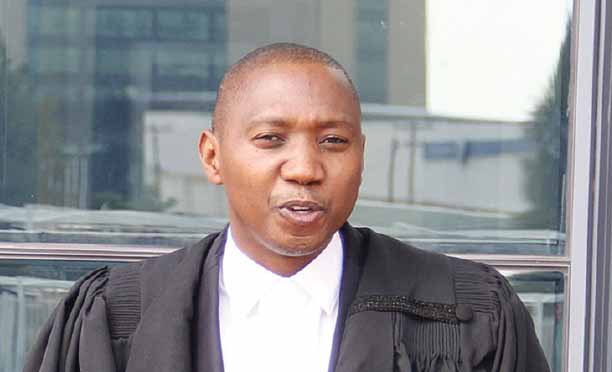Whither marriage?
The marital vow ‘For better and for worse’ is slowly losing meaning, considering the alarming divorce cases in Botswana. According to the High Court statistics, over 1400 divorce cases were registered last year (2017). The previous year, 1316 had been recorded.
The numbers had increased from 2015 in which 1190 were registered, which was also an increase from 1088 in 2014. According to official statistics, since 2013 to date, 7000 cases were registered for divorce and the number is expected to go up. According to Statistics Botswana data from the Department of Civil and National Registration (CNR), trends in Marriages between 2005 and 2014, the number of marriages registered was on an increase.
“Marriages increased drastically from 4, 601 in 2011 to 5, 214 in 2012 and continued to steadily increase to 5, 591 in 2014,” the statistics indicate. The trend only shows a downward spiral during the period 2009 to 2011 which incidentally was the period when the world was experiencing an economic downturn. The statistics also shows that the highest proportion of marriages was registered in Gaborone, which accounted for about 12 percent of all marriages. It was closely followed by Kweneng East, and then Ngwaketse South. Ngamiland West registered the least number of marriages constituting 0.1 percent of all marriages.
It indicates that the proportions of males and females marrying differ across different occupations. In 2014, the highest proportion (15.8 percent) of males marrying fell within the category of legislators, administrators and managers.
Marriage for females who were not employed was highest (34.6 percent). The crude marriage rate gives the number of persons marrying within a specified time period per 1, 000 population of all ages. The report shows that the crude marriage rate for Botswana is steadily increasing from 4.54 in 2011 to 5.45 marriages per 1, 000 population in 2014. The crude marriage rate was highest in 2007 and 2008 with around 6 per 1, 000 population. The report at the marriage section includes time series table of marriages that occurred from 2005 to 2014. It also includes tables on age at marriage, previous marital status, profession of both the groom and bride and the district of marriage.
What could be wrong?
Local attorney Uyapo Ndadi states that marriages fail to survive because partners do not share responsibilities. His take is that some partners are a liability to the marriage institution. “When you say, ‘I do,’ you are expected to join hands in making the marriage work, and that includes sharing responsibilities. Marriage is a journey, hence spouses should help each other,” he says.
When dealing with divorce cases, Ndadi observes that marriages break when the men do not provide for their families, saying it exposes their families to debts. He also says lack of communication contributes as it leaves spouses in suspicion or feeling inadequate. He says that poor communication in marriage leads to disorder.
“When spouses do not consult each other on business decisions, finances and the like, marriage collapses,” he says. He also says that absent parents in marriage kill the union. “When you are married and have children, you are supposed to raise them together. That is your responsibility, not for one spouse,” he says. Ndadi however states that couples usually come to him direct on adultery issues. He says spouses often complain that the other comes home late or does not sleep at home. “That’s when aggression comes in because the spouse in question does not want to be held accountable or be confronted on their whereabouts,” he says.
‘In-laws should advise but not interfere’
Pastor Michael Basimolodi of Grace at Work Ministries states that many marriages were destroyed by in-laws. His take is that in-laws can advise but not control and interfere with their children’s marriages.
“When solemnising marriages, I always address parents. They should stay away from their children’s marriage. Once they have released them into marriage, let them give them space. This however doesn’t mean they’re non-existent. It means they should respect boundaries,” he says. Ndadi however says that in-laws will only interefe in the marriage if spouses allow them to. “If you open the door for them, they will use it. If you don’t teach your family to respect your spouse, they won’t. Actually, they treat your spouse how you treat him or her,” he says.
Pastor Basimolodi also states that finances also contribute to divorce. He says that where there is no transparency, shared financial obligations and financial education, there is likely to be a collapse of marriage. He emphasised pre-marital counselling, saying without it, marriages will be doomed.Traditional leader in Kanye Rebaone Katlholo says that divorce is caused by people rushing into marriage, saying that there is a need to introspect before one gets married. He also says that men should lead their families without oppressing their wives.
“These days we’ve got passion killings even among married people. It means men lack vision,” he says. An accountant, DimphoTauetsile, says that women should continue to look after themselves even after they get married, adding that their husbands still need to find them attractive. “You used to wear stilettos before getting married, after the wedding, you are into pumps. Men pay attention. If your husband likes make-up, wear it. Go to the gym together after giving birth, don’t let your sexy-self go,” he says, also challenging men to continue loving their wives and pursuing them even in marriage. He says that marriage is like a garden and needs to be watered every now and then.





